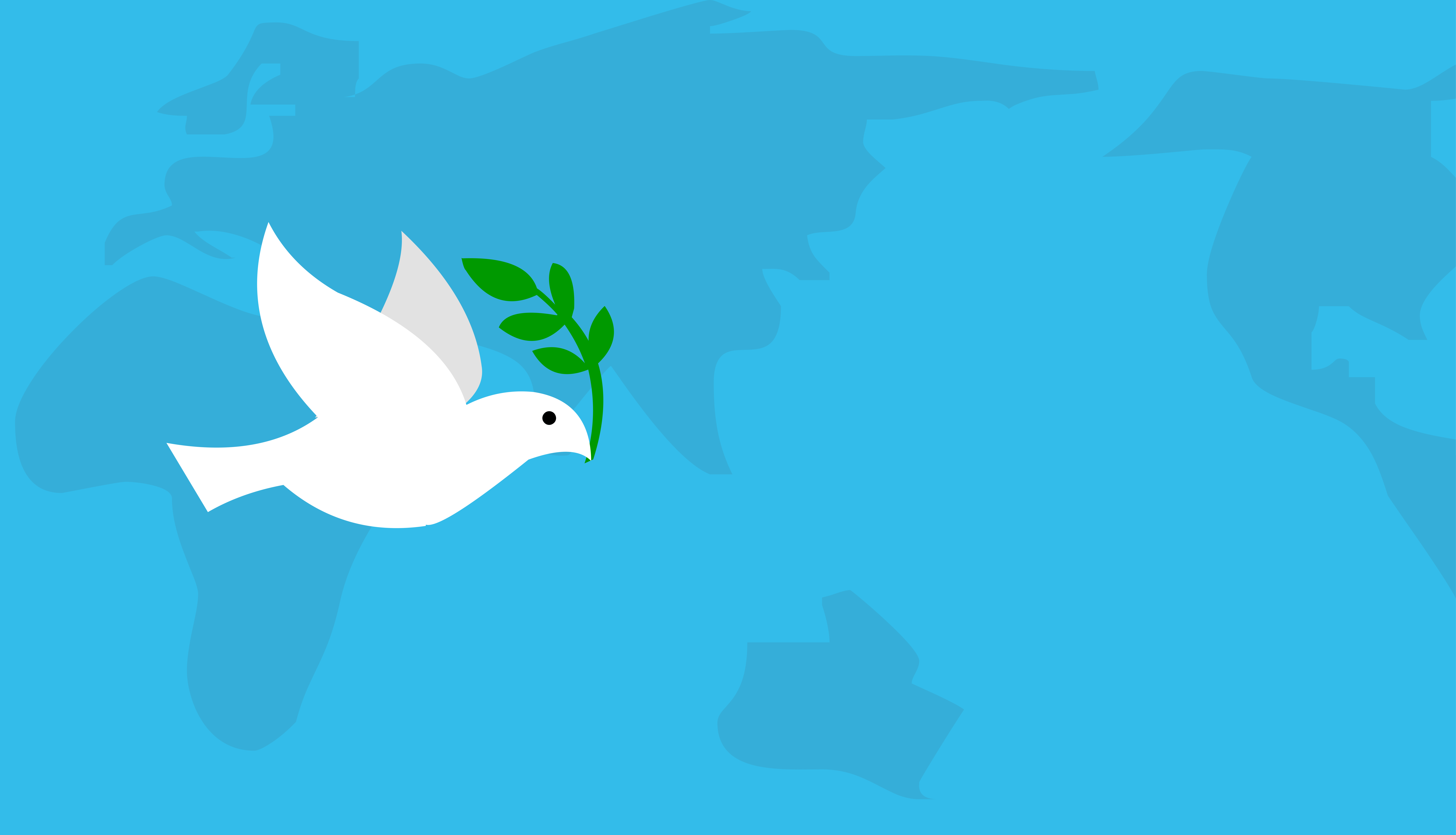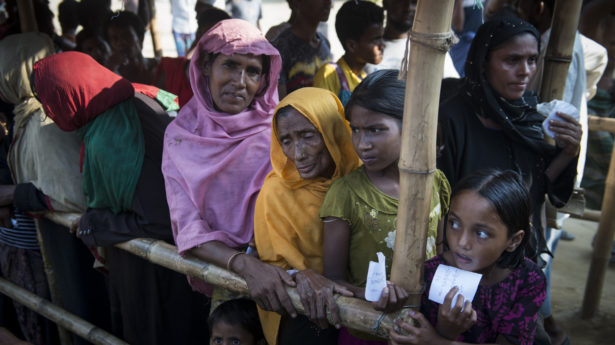The Unitarian Universalist Service Committee advances human rights through grassroots collaborations.
Remembering the Power of Non-Violence

By UUSC Staff on October 2, 2022
October 2 marks the United Nations’ International Day of Non-Violence: a time when we call upon all people to refrain from the use of violence and actively work to restore peace, justice, and the protection of human rights around the world.
As this day arrives in 2022, a non-violent world can seem like a distant hope. In multiple regions where UUSC and our partners work, violence appears to be ascendant. Russia’s president Vladimir Putin has continued his war of aggression in Ukraine and recently sought to formally annex part of Ukraine’s territory in an act of unlawful violent conquest. The military junta in Burma is still inflicting unspeakable brutality on their own citizens in an ongoing civil conflict. And Haiti faces daily levels of violence from armed criminal gangs—overseen by a corrupt and increasingly authoritarian U.S.-backed prime minister—that approximate civil war.
In the face of these conditions, we may be tempted to ask: What good can non-violence do against powerful forces bent on perpetrating injustice? How can it benefit anyone to refrain from violence when we are confronted with the unprovoked aggression of others?
The United Nations’s holiday reminds us, however, that non-violence is not a passive hope. It is an active strategy for resisting injustice. The International Day of Non-Violence is commemorated on October 2 because it marks the birthday of Mahatma Gandhi, a prophetic leader of India’s anti-colonial liberation struggle who developed the techniques of non-violent resistance. As the United Nations summarize some of the core theoretical underpinnings of Gandhi’s approach: “the power of rulers depends on the consent of the population […. N]on-violence therefore seeks to undermine such power through withdrawal of the consent and cooperation of the populace.”
Gandhi’s legacy and the message of the International Day of Non-Violence therefore have a powerful lesson for us today. Adopting a strategy of non-violence does not mean passively submitting to the oppression we see taking place in Ukraine, Burma, Haiti and so many other places. It means leveraging the power of ordinary human beings to withhold their consent and participation from institutions that perpetuate injustice. By refusing to be complicit in these systems of oppression, we can help topple them or at least interfere with their ability to inflict ongoing violence and overturn human rights.
Examples of steps our society could take in furtherance of this strategy are not abstract. For months, Burmese human rights activists—including UUSC’s partners—have been urging U.S. leaders to withhold their complicity from the military junta’s ongoing atrocities, for instance. In particular, they are urging the U.S. government to impose long-overdue oil and gas sanctions on the Burmese military, which would halt their ability to profit from lucrative fossil fuel exploitation projects and thereby limit their capacity to purchase the weapons they are using to maim and kill their own citizens.
These sanctions would not only require U.S. energy giants like Chevron to cut further business ties to junta-owned entities, they would also prevent the military from performing transactions in U.S. dollars with ventures located in other countries, such as Thailand. Given that these oil and gas trades are currently the junta’s largest source of foreign currency revenue, it is beyond dispute that coordinated sanctions from the United States and other nations would significantly impair the Burmese junta’s ability to wage war against their own people. By implication, they would also ultimately help restore inclusive democratic governance in Burma.
So too, the U.S. government should withdraw its support from the government of Ariel Henry in Haiti and back a truly Haitian-led solution to the current political crisis. Henry, the current prime minister, was installed effectively through foreign interference, and U.S. backing has been crucial to maintaining him in power ever since, even as he has delayed elections and governed without popular legitimacy. The United States has therefore hardly been a passive bystander to the violence now engulfing Haiti. To the contrary, they have actively abetted it. In order to pursue a strategy of non-violence to defuse it, all they need to do is to withhold their ongoing participation in that oppression.
All too often, the threat and persistence of violence around the world provokes additional violence in response. Mahatma Gandhi’s legacy reminds us that such retaliatory violence is far from the only or the most effective response we can make to injustice. In Burma, in Haiti, and so many other places experiencing oppression around the world, it is often the active complicity and collaboration of other parties—whether out of greed, apathy, indifference, or fear—that allows oppression to continue. By withholding this support and refusing to remain complicit in violence and injustice, we can help bring about social change.
A year ago, UUSC commemorated the life and legacy of Mohib Ullah—a Rohingya human rights leader who was assassinated for his activism on behalf of Burma’s oppressed and excluded Muslim minority. As we mark the International Day of Non-Violence, therefore, we also remember the legacy of Mohib Ullah and countless other human rights defenders around the world who risk their lives in non-violent struggles on behalf of justice. Their memory reminds us—if nothing else will—that non-violence is the opposite of staying passive in the face of evil. To the contrary, it is the use of moral power to effect change. This day and every day, we should strive to embody this lesson.
Image Credit: iStock—Rashid Abdallah

